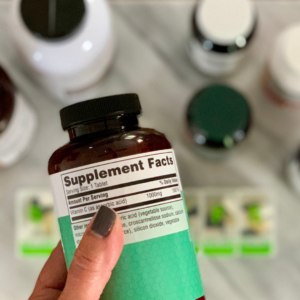 The FDA is to be admired; not so much for the scientific expertise of its investigators (which is impressive) but because the agency, now 115 years-old, is one of the few firewalls between patients and unethical behavior.
The FDA is to be admired; not so much for the scientific expertise of its investigators (which is impressive) but because the agency, now 115 years-old, is one of the few firewalls between patients and unethical behavior.
While I understand that the agency is far from always being “popular,” especially with alternative medicine advocates and the impatient awaiting approvals as drugs go through several phases, the good they have done far outweighs any criticism.
For those who feel that the FDA is obsolete and that the pharmaceutical industry is self-governing group of good guys, I would offer an indictment that has just taken place in Newtown, Pennsylvania.
KVK Tech, Inc.
KVK is a generic drug manufacturer. Their top executives have been charged with a conspiracy to commit a fraud against the U.S. Food and Drug Administration.
According to the Pennsylvania U.S. Attorney’s Office, their executives “were charged by indictment arising from the alleged distribution of unapproved drugs, as well as alleged efforts to mislead the FDA and conceal information which could impact drug safety and effectiveness.”
Using the U.S. mail for distribution, the company sold drugs to consumers who were led to thinking that their drugs were made with FDA approval.
From 2010 to 2015, the company intentionally evaded the FDA by “impeding, impairing, and defeating FDA’s mission to protect the health and safety of the public by ensuring that drugs marketed and distributed in the U.S. are safe and effective for their intended uses, according to the indictment.”
The term is obfuscation; to so complicate inquiries that the investigators put up a maze. Even the president of the company posed (not as the CEO) but simply as a consultant who had nothing to do with the illegal manufacturing. In fact, he put the company in trust for his children so if it came down to a lawsuit, they could not easily find the ownership. Every time the FDA
Not My Worry?
Of the many irregularities the FDA had uncovered was that one of KVK’s drugs, Hydroxyzine, an anxiety drug requiring a prescription, used an ingredient (according to prosecutors) “made in Mexico that was not an FDA-approved source.”
In the hands of the unethical ownership, every time there was an FDA inquiry the company, either the owner (Murty Vepuri) or his head of Quality Assurance (Ashvim Panchal) would respond back and say they “didn’t understand the question,” or “wanted more information as to what was needed.” When they were backed into a corner, they lied.
The two are each looking at up to five years in prison and $250,000 in fines. The company itself could face an additional $4 million in fines and among other penalties, exclusion from all federal programs.
Why commit such fraud? Though the world of pharmaceutical manufacturing is seemingly more sophisticated than, let’s say, a service station intentionally not changing and then charging for an air filter as promised, the elements are identical.
In one aspect of this fraud, KVK Tech intentionally purchased an unapproved ingredient for its anti-anxiety drug. The company undoubtedly thought no one would be the wiser. The FDA, routinely asking for ingredients in the product as part of their quality assurance process, were led down every road except that which was ethical. The company might have assumed that since there was no oversite as to their behavior, no one would be the wiser.
What was the need to commit this run-around? Undoubtedly, the unapproved manufacturer supplied a much cheaper ingredient that saved the company a significant amount of money. It was all-about greed. However, unlike an air filter, medications are ingested and have an effect on every organ of the body. Not only would the FDA expect a complete review of the manufacturer (a lengthy process) but every time an unapproved ingredient was used, there needs to be testing and the results of those tests would have to be reported. This was never done.
How could the company rationalize their unethical behavior? They could argue, “Well, it’s the same thing!” But it’s not. It was an ingredient that might have had impurities, unique side-effects or may have been completely counterfeit.
If KVK Tech could have gotten away with this, what might they have tried next? The opinions we may share regarding the FDA should not be based on science alone, but on ethics. When we fail to meet certain standards, we all fail to protect one another.


